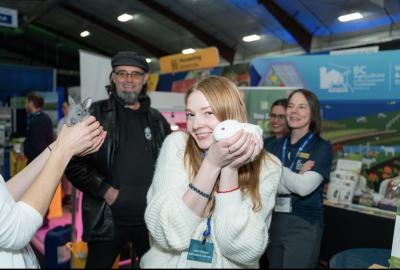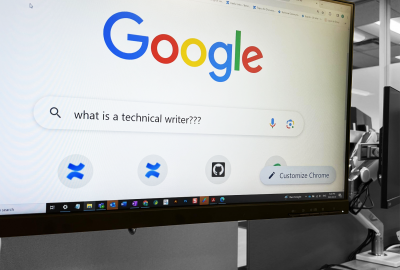
You’ve just decided to take a break from those pesky readings for your class tomorrow morning. Being the internet-savvy, Gen-Y, uber-connected student you are, you decide to log in to Facebook to see what your friends have been up to.
And you see it, in all it’s unholiness:
What Canadian City Are You Meant to Live in?
Which Hogwarts School Would You be in?
Which Greek God Are You?
What Kind of Chocolate Bar Are You?
And the inspiration for this post…

Now, before going any further, I should mention that I realize that these quizzes are made just for fun, and that they can be an amusing and interesting distraction. I’ve done several of them, and I can understand their appeal – internet memes being internet memes, if you see a bunch of your friends all doing or talking about the same thing (as seems to be happening now with the Canadian City quiz example), it’s usually only a matter of time until all but the most stalwart naysayers fall in line.
Though you might suspect otherwise, my chief concern is neither the utter stupidity of most of these quizzes, nor the questionable privacy privileges they seem to benefit from. That’s been discussed elsewhere plenty enough. Rather, my concern is that people will eventually become so tired and even outraged by these quizzes that when it comes to taking useful, carefully constructed, and empirically validated assessments, they will turn their heads. Or, on the opposite end of the spectrum, they might invest more trust in an instrument and its results than may be truly warranted.
I don’t mean to imply that most people out there are foolish enough to equate “which ‘sex in the city’ character are you?” with something like the Myers-Briggs Type Inventory, an instrument that people have devoted their entire careers to studying and interpreting, or any of myriad other real assessment tools administered by professionals. Generally speaking, I have more optimism for people than that.
What I am concerned with is the development of unjustifiably negative attitudes and beliefs towards valuable assessment resources. Social psychological research has shown that once a belief is adopted, it can be VERY difficult to change. Indeed, recent research found that trying to convince people of a conflicting belief only strengthens their own beliefs.
I’ve studied and taken a good number of career-related assessments and can tell you that, while they’re never guaranteed to give you the answers you seek, and might not always apply to everyone, they can be an incredibly valuable tool if used and understood properly. There are lots of good ones out there, based on a number of different theories. Some, such as the Strong Interest Inventory and the Self-Directed Search, are based on Holland’s theory that a match between interests and vocational activities leads to career satisfaction. As such, he devised a coding system for both people and occupations, using the labels Realistic, Investigative, Artistic, Social, Enterprising, and Conventional. Taking one of these assessments will let you know what your three letter “Holland code” is, then suggest to you some occupations that fit into that pattern of interests.

A personal example: my Holland code is SIA (Social, Investigative, Artistic). An example of an occupation that matches that code is counselling psychologist (SIA).
Other assessments are based on other theories. For example, the Myers-Briggs Type Inventory (MBTI) is a personality assessment based on the famous psychiatrist Carl Jung’s complex theory of personality, which emphasized, among other things, binaries (for example, light/dark, black/white). The MBTI classification of personalities is therefore broken down into 8 traits that comprise 4 sets of opposing pairs. As a result, there are 16 different personality “types,” each with very unique and enduring qualities. It’s a very complex system, so I won’t go into it at length here, but I will say that if you take the MBTI or one of its many free knock-offs online (the real one costs $$), you will likely be surprised by the accuracy of its results and how they can inform you of possible career choices. My result (INFP) suggested careers like counselling and writing. Go figure.
So, even if you’ve blocked every possible quiz written by prepubescent Biebermaniacs who can’t spell from your news feed on Facebook, I would seriously urge you not to give up on the real deal. It’s as simple a difference as that between light fun and serious science.
Here’s a great list of additional assessments you can try for free: http://www.workapedia.ca/career-planning/assessment-tools/

















